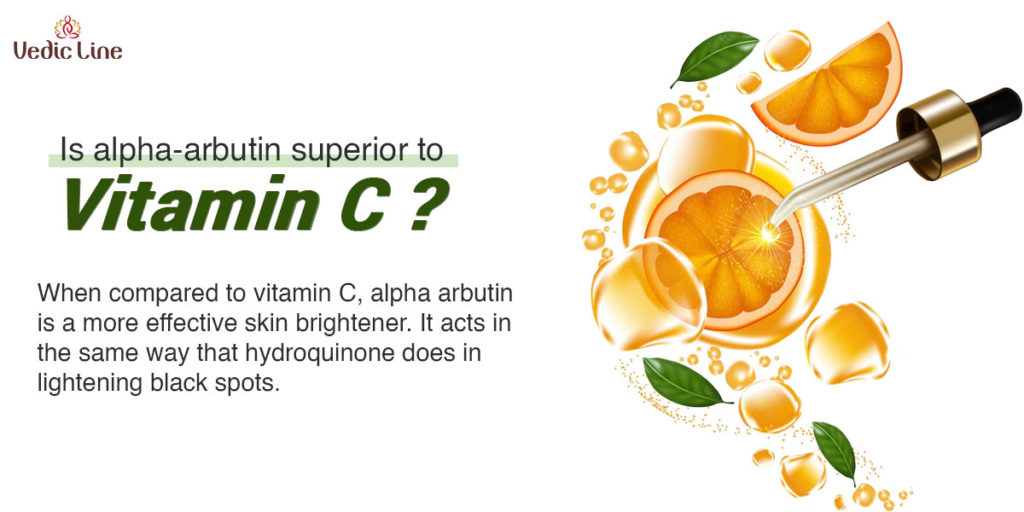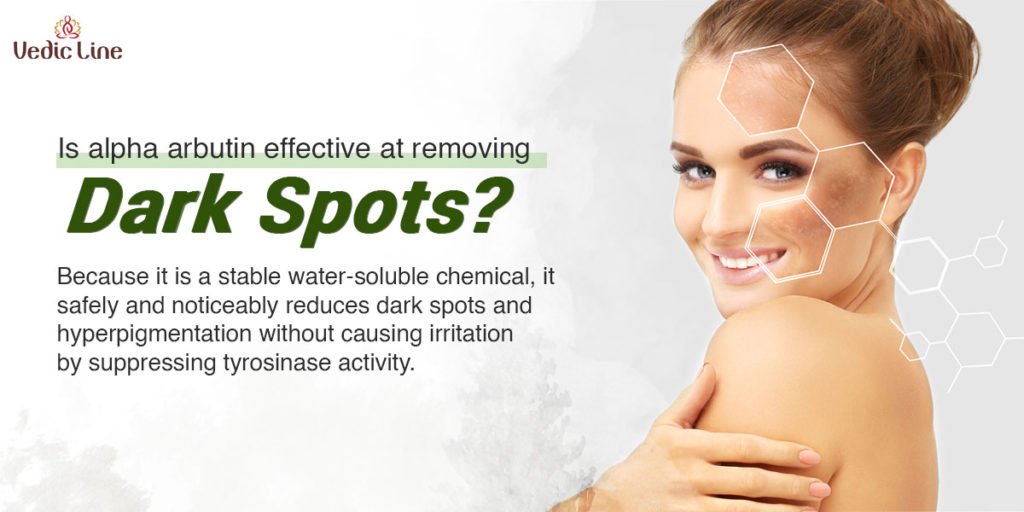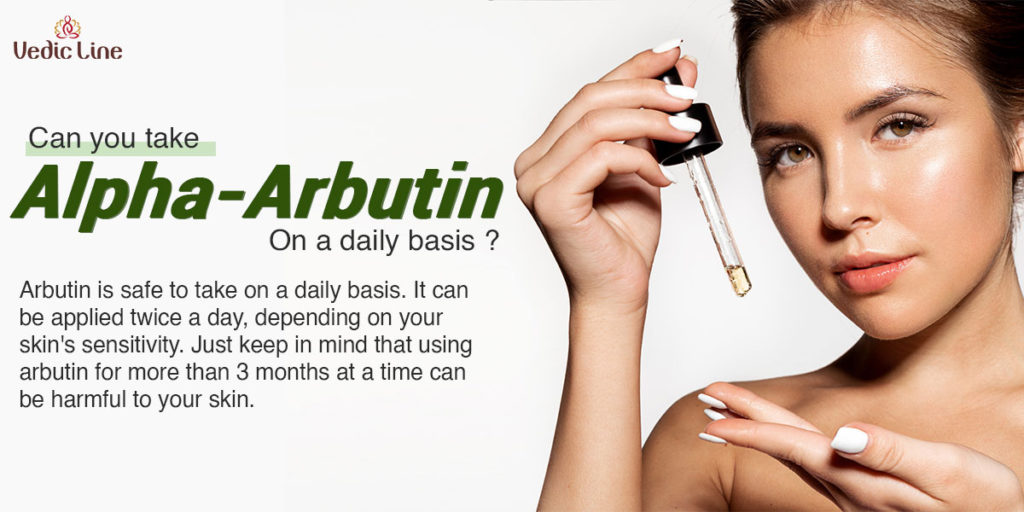Alpha Arbutin for skin, known as hydroquinone-D-glucopyranoside, is an occurring antioxidant and skin brightener found in the bearberry plant. It inhibits melanin development and improves the appearance of age spots, freckles, melasma, and post-inflammatory pigmentation.
What does arbutin do?
Alpha Arbutin for skin acts as a competitive inhibitor of tyrosinase and slows melanosomes’ maturation of the organelles that synthesize and store melanin or pigment. This is important because it acts on two different mechanisms of pigmentation. Melanin is derived from the amino acid tyrosine and this conversion is controlled by the enzyme tyrosinase.
Alpha arbutin is similar in structure to tyrosine, which fits into the tyrosinase required for melanogenesis. This means that alpha-arbutin is competing with tyrosine for a position on the enzyme and is not cytotoxic, thus inhibiting cell viability. By targeting tyrosinase, the rate-limiting enzyme in melanin formation, as well as slowing the production of the organelles that produce melanin, alpha arbutin is a potent skin brightening agent.
What are the benefits of Alpha-Arbutin?`

It whitens and reduces UV-induced pigmentation and free radicals without increasing sun exposure. Discolorations caused by inflammation and environmental stress as well as tone are even out. Besides glycation, it also addresses skin irritation and loss of elasticity due to sugar.
Improves uneven skin tone: Because arbutin inhibits tyrosinase, an enzyme that aids in melanin formation, it can help prevent or remove dark spots, resulting in a more even complexion.
Effective in fading scares: – Arbutin, like its ability to drop dark spots, also fades the scars that remain after an acne breakout is healed.
Brighten skin:- A prior review revealed that arbutin prevents the production of black spots on the skin, resulting in a brighter complexion
Natural skin lightening agent
Arbutin for skin reduces hyperpigmentation, which means it works to fade sun spots, age spots, acne scars, and melasma. Also, arbutin prevents future freckles and hyperpigmentation from developing after sunburn.
How:- Arbutin inhibits any excess production of melanin (the pigment that makes the skin color). Melanin is produced when an enzyme called tyrosinase makes the amino acid tyrosine, and then the tyrosine is passed to cells called melanocytes that convert tyrosine into melanin. Arbutin disrupts this chain of events by telling tyrosinase to put a stop to the production of tyrosine – without tyrosine, the melanocytes have nothing to work with that limits melanin production in your skin. So there you have it: Less tyrosine and less melanin mean less pigment, fewer dark spots, and an even more even complexion. Magnificent.
How to Apply Arbutin
Always do a patch test! Begin by applying the Arbutin for skin product to a small area on your forehead where the skin on your face is thickest in the evening. If there is no irritation within 24 hours, begin applying the product to your skin as a spot treatment every night. If there is no irritation after a week and you want to be more aggressive with the treatment, start applying the Arbutin product both in the morning and at night.
Use is For The Face Or As A Spot Treatment
Arbutin can be used as a spot treatment to parts of your face afflicted by hyperpigmentation, or it can be applied to your complete face while avoiding the eyes, lips, and mouth. Aside from your face, hyperpigmentation can also affect your chest and arms. As a result, you can apply Arbutin to your hands as well as the top of your chest.
Who should use it?

Having the gentle side, it works well with all skin types and tones, so looking for an effective solution for any type of skin discoloration due to acne scars, sun damage, or melasma, he should consider using alpha arbutin. Even if you want to correct a blotchy skin tone, Alpha Arbutin is the answer.
1. Sensitive Skin
When compared to other skin brighteners such as retinol and glycolic acid, Arbutin works well on sensitive skin.
2. Dry Skin
It does not dry out or irritate the skin like other skin whitening treatments. Arbutin protects and nourishes the skin, allowing persons with scaly or dry skin to benefit from topical Arbutin treatment.
3. Acne-Prone Skin
It especially fades away tough acne scars and also prevents future breakouts. Over time, it improves the texture of the skin and helps to smooth out the sagging skin. Acne scars can be stubborn, read our blog on ingredients that are proven to fade tough acne scars.
When should you use it?

Arbutin for skin It’s okay to use it twice a day. For the best results, use it in both the AM and PM skin care procedures. At bedtime, apply moisturizer and cream for enhanced absorption and hydration. Always cleanse your skin before using an Alpha Arbutin product, no matter what time of day it is. We recommend Detoxi’s Refreshing Face Wash for a good cleaning and a healthy, pollution-free radiance.
Conclusion
Having amazing ingredients is a list by dermatologists for its skin-brightening and anti-blemishing properties, making it popular in the skincare market. However, it is important to know that Arbutin for skin does not cause permanent changes in the skin condition which is a good thing, it makes it a safe skin without causing permanent changes to your skin. Also, melanin is an important pigment for the skin, and alpha-arbutin reduces melanin production, so take care, not to overuse or overuse an arbutin-based product.




